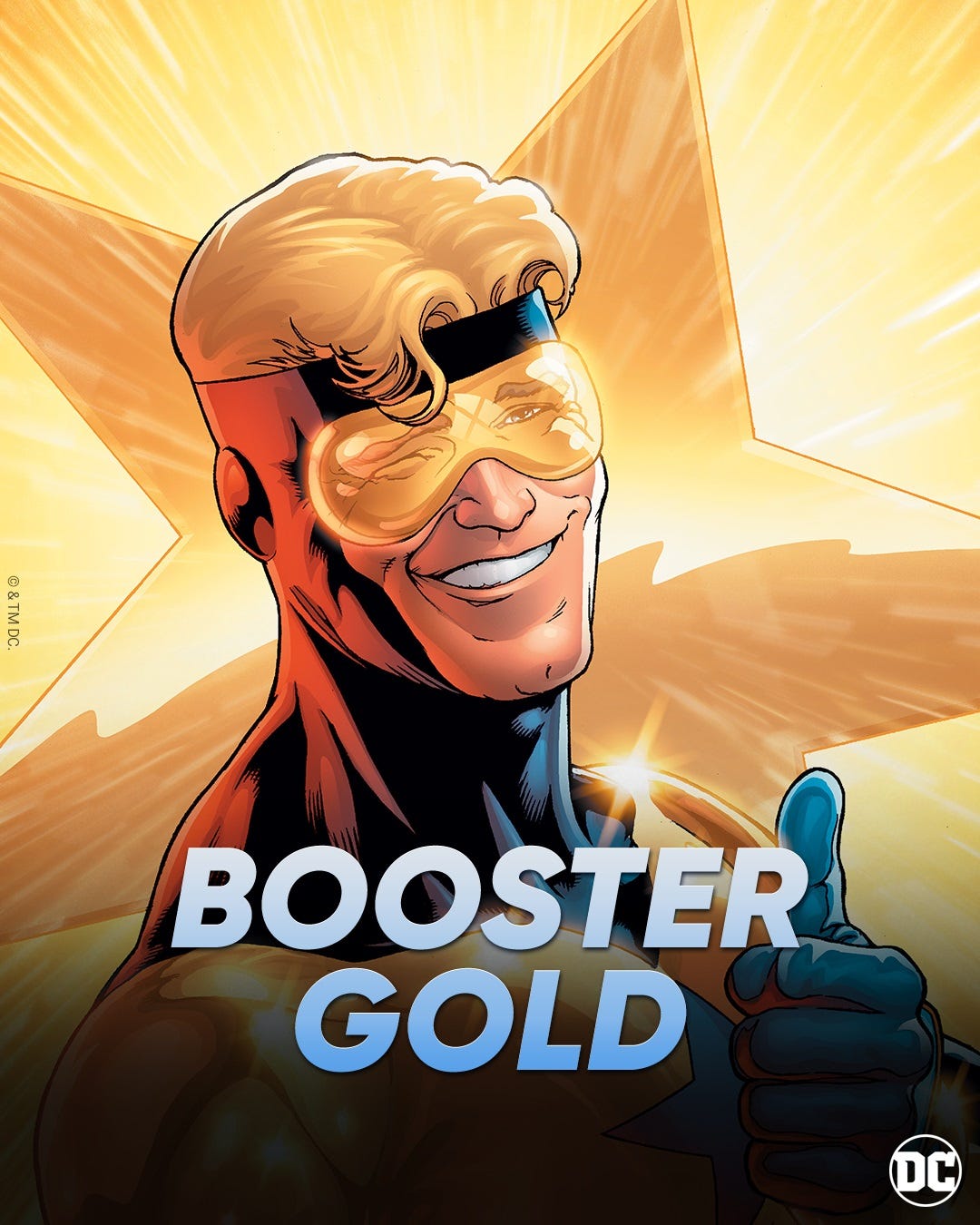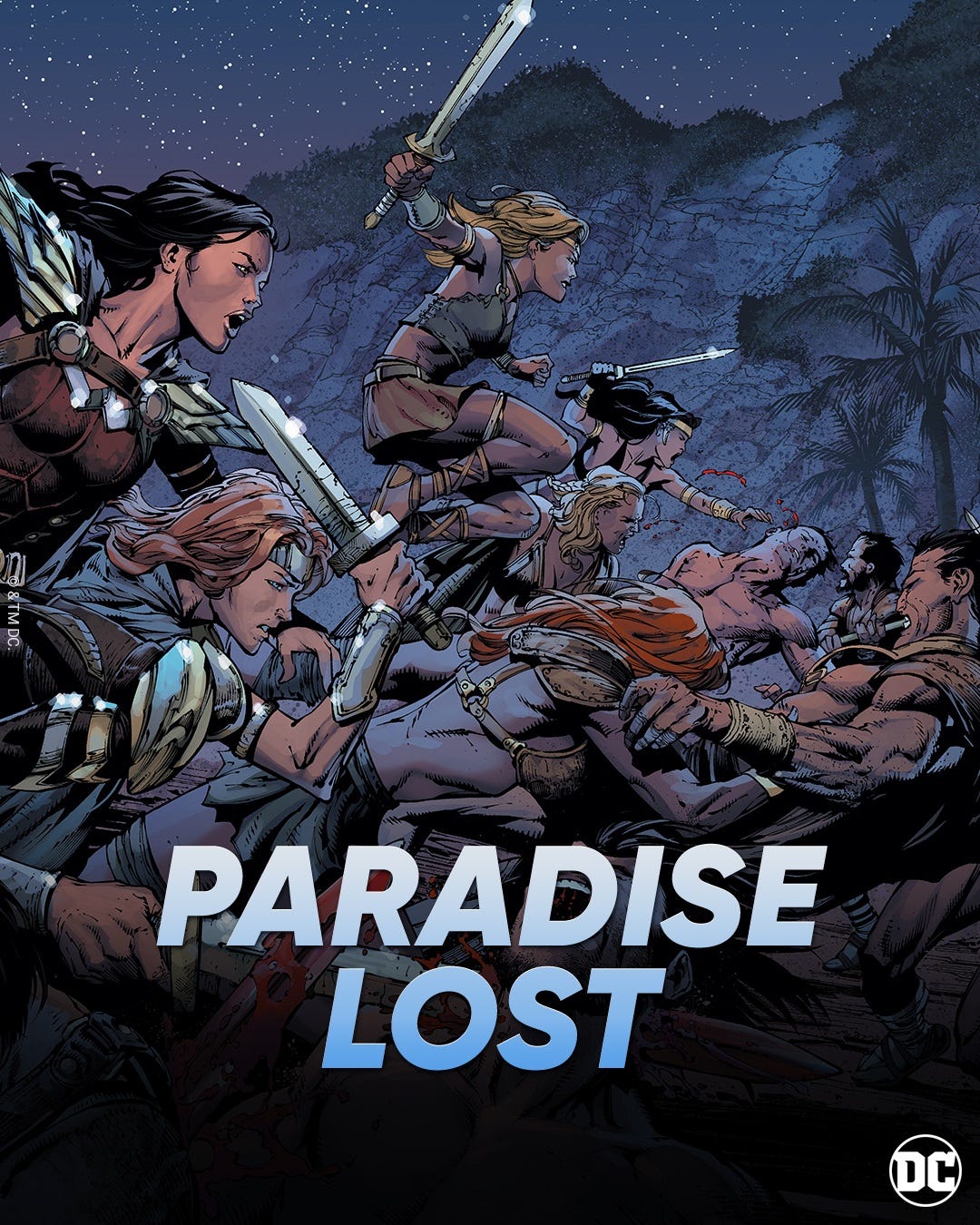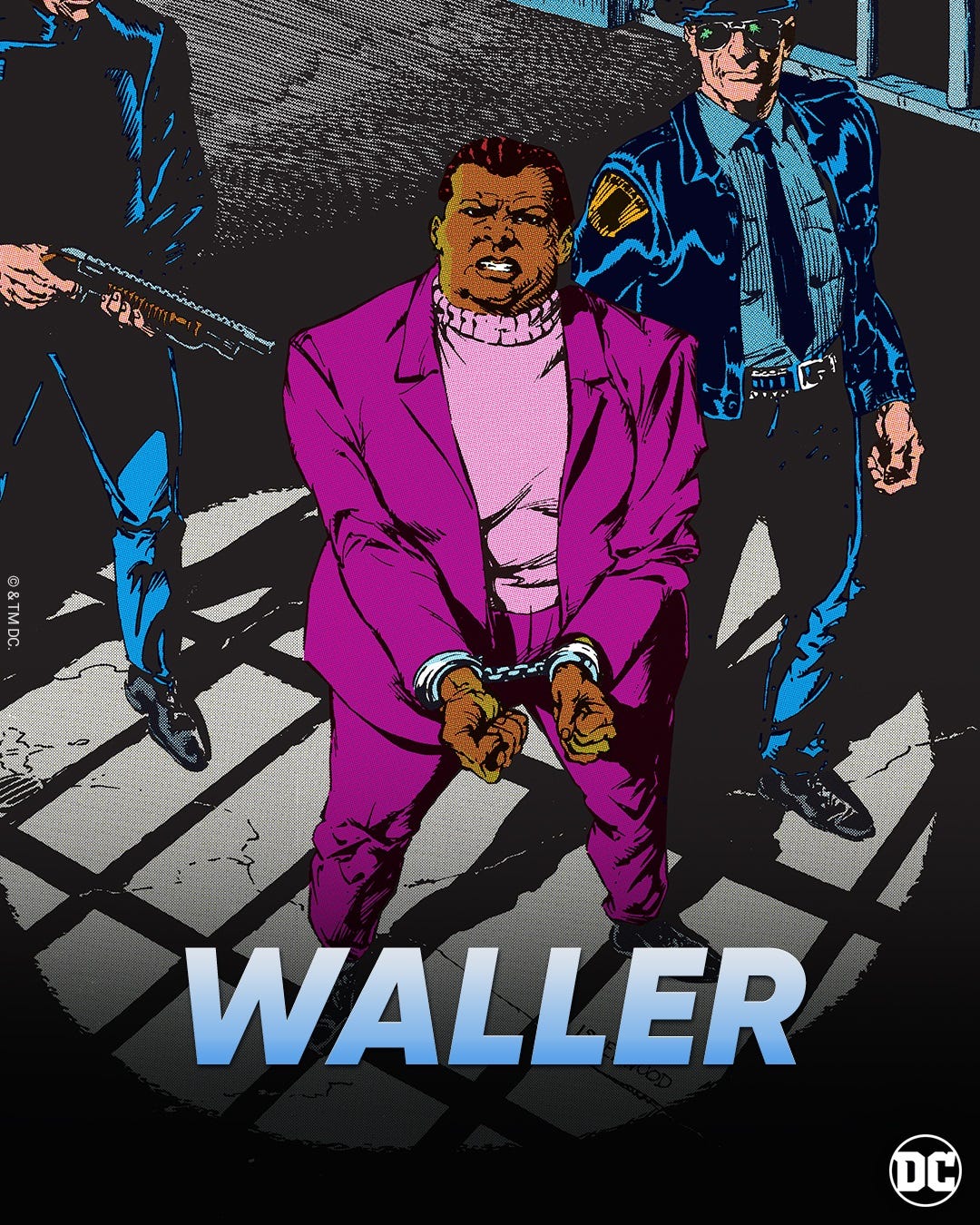Too Much TV: Your TV Talking Points For Tuesday, January 31st, 2023
I'm sorry, but "Booster Gold" sounds like the name of a dollar store floor wax.
Here's everything you need to know about the world of television for Tuesday, January 31st, 2023.
WARNER BROS DISCOVERY MAKES TWO FAST CHANNEL DEALS
Warner Bros Discovery is launching branded FAST channels (WB TV Reality, WB TV Family, and WB TV Series) and is licensing 225 AVOD shows worth of on-demand content to Roku and Tubi. No date available yet for Roku, but the rollout begins on Tubi begins tomorrow.
The programming on the FAST channels will include a lot of the programming that was recently removed from HBO Max, including The Nevers, Westworld, FBoy Island, Raised By Wolves, and The Time Traveler’s Wife.
No specifics on the AVOD shows, but content is described by the company as "thousands of hours of feature-length and episodic content from Warner Bros. Discovery’s catalog, which includes the Discovery Channel, HGTV, Food Network, TLC, Warner Bros. Pictures, and Warner Bros. Television."
WBD is also saying that it still plans on launching its own stand-alone FAST service later this year. I suspect the plan is for many of the higher-profile titles to be available on a FAST channel elsewhere, but make the episodes individually available on demand on WBD's own AVOD. And like a lot of the AVOD going to Roku and Tubi are older seasons of well-known titles along with second-tier shows that have stopped production. Many of those episodes are ones that have been disappearing from Discovery+ in recent months.
These type of deals certainly provide added revenue to Warner Bros. Discovery and executives will argue these titles are ones that are no longer grabbing an audience and won't be missed on whatever WBD will be calling its upcoming HBO Max Plus Discovery+ SVOD. But if the shows aren't going to grab an audience, then why would Roku and Tubi be interested in licensing them?
WEEKLY WHIP MEDIA STREAMING ORIGINALS REPORT
STREAMING SPENDING MANDATES AND THE RULE Of UNINTENDED CONSEQUENCES
Australia is one of the latest countries to move towards imposing some sort of spending or revenue mandate on streamers operating in the country. I hadn't written about it much, primarily because it's not clear exactly how the mandates will be structured. In most cases, these bills have mandated that streamers spend some percentage of the revenue they earn in the country on "local" production.
Unmade is a really useful newsletter to read if you're interested in the Australian media industry and the latest edition provides some unique insight into the proposal:
There are practical issues here. With a broadcast network, it’s possible to stipulate the minimum percentage of content across each genre within set down times.
You can’t do that with a streamer which has a library. There’s no schedule to apply percentages to. Instead, it would most likely involve setting down obligations to spend a certain percentage of local subscription (and advertising?) revenues on local content.
That’s where it must be dawning on the TV networks that they’re in danger of being the dog that caught the car. The unintended consequence for the networks is that they will now be competing with the streamers even harder in the limited pool of skilled production people.
And depending how the rules are eventually structured, the streaming players may be about to receive a big new incentive to spend money on sports rights, when the next round of deals are done in five years time or so. That will drive up the price, particularly as the rationale for anti-siphoning rules applying only to broadcast television fades.
There are a number of challenges to consider when applying this idea in Australia. There are versions of it in place in countries ranging from France and Denmark to India and Thailand. And generally they haven't had the impact most countries had hoped for when they originally passed the bills. In part, because it's easy for streamers to manipulate their revenue stream to a lower number by offering discounts and bundles in the country as a way to continue to grow subs while pushing down revenue.
But there's also a cultural challenge at play in Australia. Australian productions tend to look very similar to shows produced in the US and UK, so it's easy for a streamer to just shift production from one of those two areas to Australia. Essentially just shifting pieces around without having to spend more. Australia - like a lot of countries - also has a limited pool of experienced crew and encouraging streamers to spend more money in Australia will likely drive up the costs for the country's broadcasters, who will forced to compete for the same crew.
DC'S FUTURE TV AMBITIONS
Film director James Gunn and producing partner Peter Safran were appointed as the co-chiefs of all DC big and small screen projects last year. On Tuesday, the duo unveiled their plans for the future, which involves 10 TV and movie projects as part of a first wave. The TV shows and movies will all be connected, with a mix of live action and animation. There were also be some other DC superhero films that will will be considered "Elseworlds" stories and not connected to the stories the duo are telling. Greg Berlanti's reign as DC TV go-to guy is also coming to end. His long-in-the-planning-stage Green Lantern series has been scrapped. And the Superman & Lois series will likely continue another season or two, although it too will not be part of this overall cinematic universe.
Here are the five "first wave" DC television projects:
Booster Gold
In this live-action series, Booster Gold uses basic technology from the future to pretend to be a superhero in the present day. Gunn described it as "imposter syndrome as superhero.
Creature Commandos
This seven-episode animated show, written by James Gunn, shows Amanda Waller creating a black-ops team out of monstrous prisoners. Executives are looking to find people who can voice the animated characters and also portray the live-action versions when the antiheroes show up in movies and series.
Lanterns
This enormous TV event series follows intergalactic cops John Stewart and Hal Jordan as they uncover a dark mystery.
Paradise Lost
Set in Themyscira, home of the Amazons and birthplace of Wonder Woman, this TV drama focuses on the genesis and political intrigue of an island of all women.
Waller
Starring Viola Davis, this series features Team Peacemaker and will be written by Christal Henry (Watchmen) and Jeremy Carver (Supernatural, Doom Patrol).
ODDS AND SODS
* NBC has picked up a third season of La Brea, ahead of the show's season two midseason premiere tonight. One advantage in making the announcement now is that it provides an assurance to viewers they won't be left at the end of the season with answered questions and no upcoming new episodes.
* Peacock has dropped its free tier for new sign-ups. It's worth noting the service is also currently running a "year of premium Peacock for $30" deal, which I am sure is just a coincidence.
* YouTube TV has dropped the MLB Network from its channel line-up.
* Hulu has ordered a King Of The Hill revival.
TWEET OF THE DAY
WHAT'S NEW FOR TUESDAY:
Copenhagen Cowboy: Nightcall with Nicolas Winding Refn (Netflix)
Cunk On Earth (Netflix)
Fight The Power: How Hip Hop Changed The World (PBS)
Grassroots Series Premiere (MHz Choice)
La Brea Spring Premiere (NBC)
Mongeville Season Two Premiere (MHz Choice)
Nate Bargatze: Hello World (Prime Video)
Pamela, A Love Story (Netflix)
Click Here to see the list of all of the upcoming premiere dates for the next few months.
SEE YOU WEDNESDAY!
If you have any feedback, send it along to Rick@AllYourScreens.com and follow me on Twitter @aysrick.










